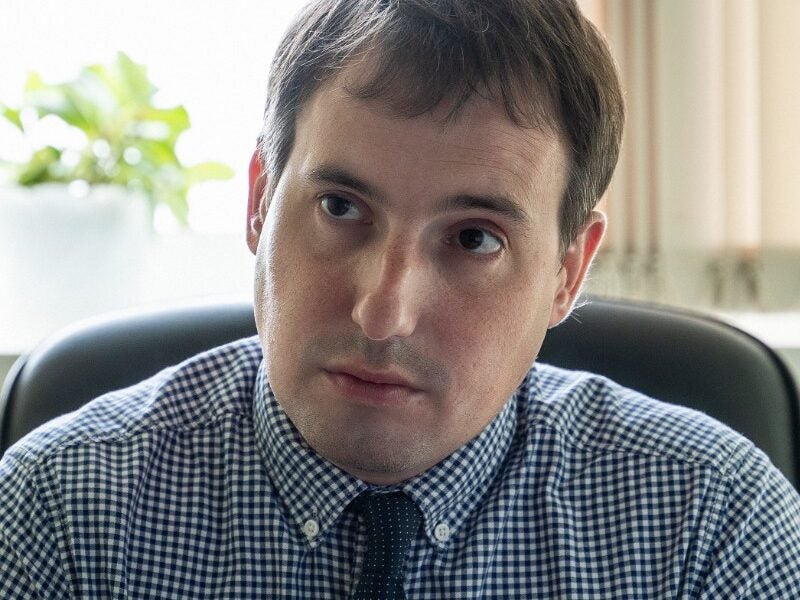Clinical trials sponsored by international pharma companies at the First Moscow State Medical University have paused recruiting new patients, says the university’s Department of Clinical Trials director Dr Vladimir Andrianov.
“They all pushed the pause button,” Andrianov tells Clinical Trials Arena. “They are waiting for the situation inside and outside Russia, to understand the prognosis.” The university received letters from international sponsors in the past several days, he adds. Russia began an invasion of Ukraine on Thursday 24 February, with news reports of casualties in Ukraine and impact on daily life in Russia due to sanctions by other countries.

Discover B2B Marketing That Performs
Combine business intelligence and editorial excellence to reach engaged professionals across 36 leading media platforms.
First Moscow State Medical University, also known as Sechenovskiy Universitet, is one of the biggest universities in Russia with as much as 120 ongoing clinical trials covering a wide variety of diseases, Andrianov says. According to ClinicalTrials.gov, there are at least 930 clinical trials in Moscow in the Phase I–III stage that is recruiting, enrolling by invitation, or active but not recruiting.
Russia clinical trial sample transport paralysed
While recruitment could start again immediately once sponsors give the university the green light, there is still the disruption of sending clinical trial samples from Russia to central laboratories in Europe or in the US, Andrianov notes. Russia has closed its airspace to airlines from 36 countries, with countries, most recently the US, banning Russian flights into their airspace.
Prolonged deliveries of lab samples are concerning for their quality, says Neuro Pharma head of medical and chapter leader in Russia Alexandra Safronova. The last time this type of disruption occurred was in 2010, when volcanic eruption in Iceland interrupted flights, Andrianov says.

Russia has capabilities to analyse samples in the country, Andrianov notes. For instance, the university has a modern laboratory which was renovated just last year with new, validated equipment, he says. There are also other commercial laboratories available locally, he notes. However, the decision to use these resources would be up to the international companies, he says.

US Tariffs are shifting - will you react or anticipate?
Don’t let policy changes catch you off guard. Stay proactive with real-time data and expert analysis.
By GlobalDataThe best-case scenario: the situation would be back to normal in one-to-two months, Safronova says. Worst case: there would be the need of a clinical trial hub in Russia with local laboratories and data management services that would be outsourced to local companies, she adds. Longer term, study costs will increase for logistic management, she notes.
Enrolled patients likely to stay engaged
As for patients already in clinical trials, they will continue to receive therapies as per protocol, Andrianov says. There is a stockpile for investigational drugs and other drugs used in clinical trials lasting 3–6 months on average, and this is typical, he notes.
He says he does not anticipate dropouts from clinical trial patients. Trial participants understand they are a part of an international project and receive the best care available and access to the most advanced therapy, he explains.
Russian company-sponsored trials unaffected so far
Sechenovskiy Universitet supports both clinical trials from both international and Russian companies, but mostly the former, Andrianov says. Trials sponsored by pharma companies in Russia are undisrupted so far due to their local presence, he adds.
Roche, in a statement to Clinical Trials Arena, says it has set up a task force and is assessing the impact of the situation on its clinical trials in Ukraine and Russia. Its priority is to ensure all patients enrolled in trials in Russia and Ukraine continue to access treatments. Roche employs 810 people in Russia, with offices in Moscow and St Petersburg.
Merck, known as MSD outside the US and Canada, in a separate statement says it continues to monitor the evolving situation in Ukraine as well as any potential impact to its supply chain. It is assessing what steps it will need to take across all its clinical development programs with study locations in Ukraine and Russia, with the goal of prioritising the safety of its study participants and investigators. Clinical Trials Arena reached out to other pharma companies with a significant footprint in Russia and will update this news article if we receive a reply.
Previously, Clinical Trials Arena examined how many clinical trials are ongoing and planned in Ukraine. Also, we spoke with an ex-FDAer who called for the agency to freeze Russian regulatory requests, with the FDA recently acknowledging the receipt of the petition. In an open letter, around 400 pharma company CEOs, executives and investors have pledged to stop working with Russian companies and to reject investment from Russian funds in response to recent events. GlobalData Media is following the Ukraine crisis closely across a variety of industries, you can read our coverage here.
If the situation does not improve, there is risk clinical trials in Russia would close, Safronova says. “We don’t know what will happen in the future – the situation can change every hour, every day,” Andrianov says. “We are against this war – it is disruptive to our normal life.”





